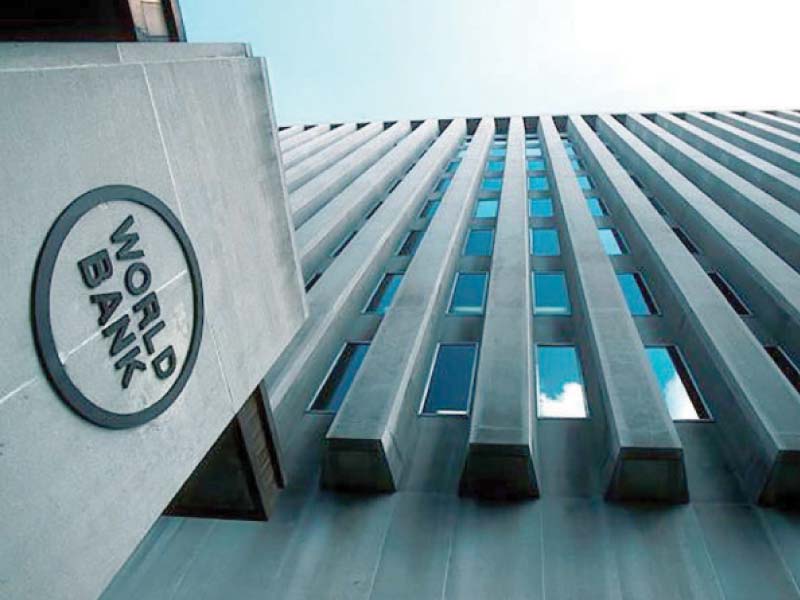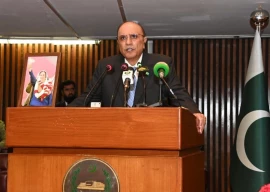
ISLAMABAD:
The World Bank has approved a $304 million loan for reforms in Punjab’s taxation system as provincial tax revenues are declining for the past two consecutive fiscal years, which happened to be first two years of the Pakistan Tehreek-eInsaf (PTI) government.
The World Bank’s board of executive directors approved $304 million in financing for the Punjab Resource Improvement and Digital Effectiveness Programme (PRIDE), according to a statement issued by the Washington-based lender on Friday.
Total cost of the tax reform project is estimated at Rs90 billion or $554 million and the remaining $250 million equivalent financing will be arranged by the provincial government.
The programme supports efficiencies in public resource management that generate savings and create fiscal space for growth generating investments in the Punjab province, said the World Bank.
However, the functions that the government of Punjab Chief Minister Usman Budzar has listed in return for $304 million or about Rs50 billion do not need any financial assistance.
The loan has been obtained for improving business process re-engineering, revision, change of rules and regulations, development of comprehensive automated systems, introduction of e-services and institutional capacity building.
All these functions do not need any foreign money, rather they require political will to enhance the narrow provincial tax base. In return for the loan, the World Bank has imposed conditions of reducing “unbudgeted fiscal risks including the unfunded pension liability of the government of Punjab, and reducing variance between original and actual budget expenditures,” according to provincial government documents.
But the World Bank noted in project documents that the expected net economic impact of the programme would be $1.5 billion over the five-year implementation period.
The projected net benefit from improvements in Punjab pension fund management; adoption of e-procurement and digitisation of local service delivery; and increase in own source collection is valued at $1.26 billion, it added.
“The PRIDE programme is integral to the World Bank’s whole-of-country approach in helping Pakistan strengthen public financial management systems at the federal and provincial levels,” said World Bank Country Director for Pakistan Najy Benhassine.
World Bank documents showed that the economic downturn was projected to increase unemployment in Punjab by 5 to 8 million, pushing many households below the poverty line. In recent years, the province has made efforts to increase its own source revenues, which come mainly from provincial taxes, to ramp up investment in development priorities.
The economic fallout from the pandemic is, however, expected to reduce the province’s own revenues, leaving it with fewer resources to finance its emergency response and sustain the already modest investment in human capital and infrastructure. Punjab met only 18% of its total expenditure in fiscal year 2018-19 from its own tax collection while the remaining expenditure was financed through federal transfers and grants.
According to World Bank’s estimates, Punjab has the potential to increase its tax revenues, without imposing new taxes or raising tax rates.
Punjab’s tax receipts currently account for only 0.8% of the province’s estimated economic output, indicating that the province may be collecting only a quarter of its tax potential, according to the World Bank.
The World Bank said PRIDE would support the Punjab Growth Strategy and the Punjab Public Financial Management Reforms Strategy, both of which were aimed at developing a robust public financial management system.
But the $304 million loan had been sought from the World Bank to make taxation more progressive, broaden the tax base, reduce interaction between taxpayers and tax collectors and facilitate taxpayers to improve the ease of doing business.
Last month, the PTI’s provincial government had used PML-N’s era statistics to seek concept clearance of the loan from the federal government as its own performance was not up to the mark.
World Bank documents showed that the total provincial tax collection was constantly on the decline for the last two fiscal years. In fiscal year 2017-18, which was the last year of the PML-N government, total tax collection by the province stood at Rs205 billion, which dipped to Rs191 billion at the end of second year of the PTI government.
During the past two years, the provincial tax collection cumulatively decreased by Rs14 billion or nearly 7%. Punjab government’s documents showed that the province’s tax-to-gross domestic product (GDP) ratio had increased from 0.4% in 2009-10 to 1.2% in 2017-18.
The Punjab government followed in the footsteps of the federal government that also acquired a loan of $400 million from the World Bank in the name of tax reforms.





















































COMMENTS
Comments are moderated and generally will be posted if they are on-topic and not abusive.
For more information, please see our Comments FAQ